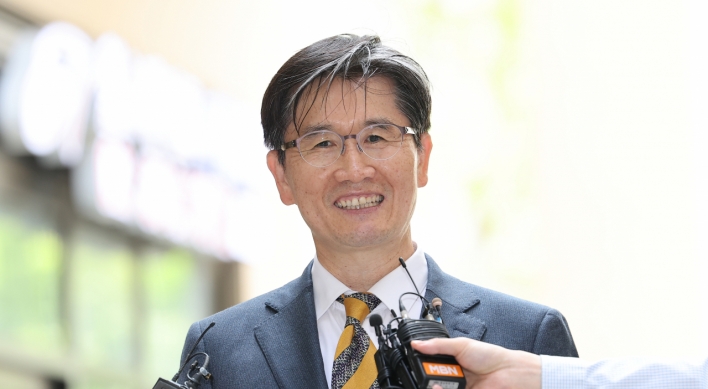Korea-Japan tension reopens over ‘forced labor’
Seoul promotes Tokyo’s acknowledgement online
By Korea HeraldPublished : July 7, 2015 - 21:15
South Korea’s Foreign Ministry on Tuesday installed a popup window on its website to underscore that Japan’s wartime use of forced Korean labor was reflected in the final UNESCO document that gave World Heritage status to 23 sites of Japan’s Meiji-era industrial revolution.
The move came after Tokyo was seen watering down its official statement at a session of the World Heritage Committee in Bonn, Germany, last Sunday that a large number of Koreans were “brought against their will and forced to work under harsh conditions” in the 1940s.
Tokyo is poised to launch an international campaign to deny its colonial-era use of forced Korean labor at some of Japan’s Meiji industrial revolution sites, Kyodo News reported, presaging another diplomatic row over the historical issue stemming from Japan’s 1910-45 colonial rule.
The move came after Tokyo was seen watering down its official statement at a session of the World Heritage Committee in Bonn, Germany, last Sunday that a large number of Koreans were “brought against their will and forced to work under harsh conditions” in the 1940s.
Tokyo is poised to launch an international campaign to deny its colonial-era use of forced Korean labor at some of Japan’s Meiji industrial revolution sites, Kyodo News reported, presaging another diplomatic row over the historical issue stemming from Japan’s 1910-45 colonial rule.

Japan’s denial of forced labor has dampened the emergent mood for a thaw in the bilateral relationship that was forged as the two countries marked the 50th anniversary last month of the normalization of diplomatic relations.
The popup message on the South Korean Foreign Ministry’s website carried the full statements that South Korea’s Vice Foreign Minister Cho Tae-yul and Japan‘s Ambassador to UNESCO Kuni Sato made at Sunday’s WHC session.
In his statement, Cho said the WHC’s decision to note the forced Korean labor marked another important step toward healing historical wounds and reaffirming that the historical truth of the unfortunate past should also be reflected in an objective manner.
The message also carried a press release detailing Tokyo’s pledges to take measures to commemorate Korean victims of forced labor during the colonial era including establishing an information center about the victims.
Based on Sato’s English statement, the Seoul government believes that Tokyo, for the first time, acknowledged its wartime recruitment of forced laborers from the Korean Peninsula.
But Tokyo argues that the expression “forced to work” in its WHC statement is different from the expression “forced labor or compulsory labor,” which is banned by the 1932 Forced Labor Convention to which Japan is also party.
It also maintains that bilateral colonial-era issues, including the issue of forced labor and wartime sexual slavery, were settled under a 1965 bilateral treaty that normalized diplomatic relations between the two sides.
Media reports in Korea and Japan said that by refusing to accept the facts about forced labor, Tokyo appears to be trying to circumvent public criticism, particularly from conservatives, that it succumbed to Korean pressure to recognize the use of forced labor at some of the sites.
By Song Sang-ho (sshluck@heraldcorp.com )
-
Articles by Korea Herald











![[Weekender] How DDP emerged as an icon of Seoul](http://res.heraldm.com/phpwas/restmb_idxmake.php?idx=644&simg=/content/image/2024/04/25/20240425050915_0.jpg&u=)
![[Today’s K-pop] NewJeans' single teasers release amid intrigue](http://res.heraldm.com/phpwas/restmb_idxmake.php?idx=644&simg=/content/image/2024/04/26/20240426050575_0.jpg&u=)






![[Herald Interview] Mistakes turn into blessings in street performance, director says](http://res.heraldm.com/phpwas/restmb_idxmake.php?idx=652&simg=/content/image/2024/04/28/20240428050150_0.jpg&u=)
